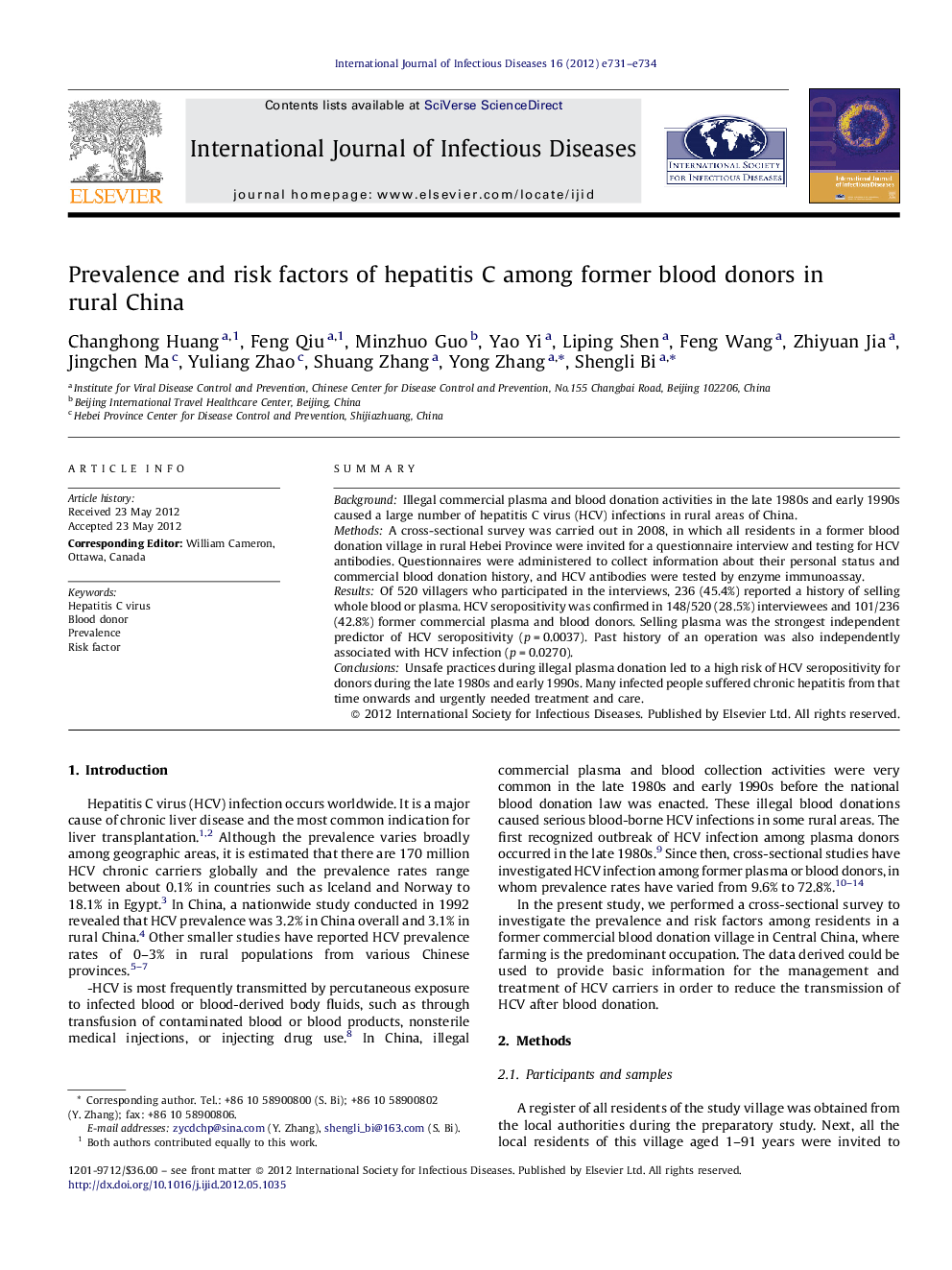| Article ID | Journal | Published Year | Pages | File Type |
|---|---|---|---|---|
| 3363260 | International Journal of Infectious Diseases | 2012 | 4 Pages |
SummaryBackgroundIllegal commercial plasma and blood donation activities in the late 1980s and early 1990s caused a large number of hepatitis C virus (HCV) infections in rural areas of China.MethodsA cross-sectional survey was carried out in 2008, in which all residents in a former blood donation village in rural Hebei Province were invited for a questionnaire interview and testing for HCV antibodies. Questionnaires were administered to collect information about their personal status and commercial blood donation history, and HCV antibodies were tested by enzyme immunoassay.ResultsOf 520 villagers who participated in the interviews, 236 (45.4%) reported a history of selling whole blood or plasma. HCV seropositivity was confirmed in 148/520 (28.5%) interviewees and 101/236 (42.8%) former commercial plasma and blood donors. Selling plasma was the strongest independent predictor of HCV seropositivity (p = 0.0037). Past history of an operation was also independently associated with HCV infection (p = 0.0270).ConclusionsUnsafe practices during illegal plasma donation led to a high risk of HCV seropositivity for donors during the late 1980s and early 1990s. Many infected people suffered chronic hepatitis from that time onwards and urgently needed treatment and care.
